Undergraduate Courses
BIOSTAT499: Transforming Analytical Learning in the Era of Big Data
- Undergraduate level
- Residential
- Spring-Summer term(s) for residential students;
- 3 credit hour(s) for residential students;
- Instructor(s): Matt Zawistowski (Residential);
- Prerequisites: Admission to BDSI Program
- Description: The "Transforming Analytical Learning in the Era of Big Data" course is a a six week undergraduate summer program that exposes students to diverse techniques, skills and problems in the field of Big Data and Human Health. Students receive a broad and interdisciplinary introduction to statistical theory and concepts during morning lectures led by faculty from across campus. Afternoons are spent in small faculty-mentored research groups analyzing real big datasets to address focused research questions. The course also includes professional development designed to prepare students for the graduate school application process.
- Learning Objectives: At the conclusion of the course, students will have the skills required to pursue graduate studies in Big Data science.
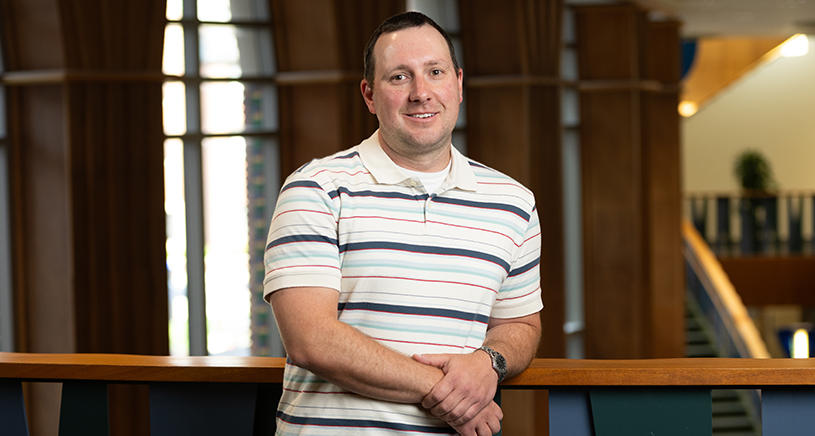
PUBHLTH200: Health and Society: Introduction to Public Health
- Undergraduate level
- Residential
- Fall, Winter term(s) for residential students;
- 4 credit hour(s) for residential students;
- Instructor(s): Emily Youatt (Residential);
- Prerequisites: none
- Advisory Prerequisites: Introductory chemistry lecture and introductory biology lecture.
- Description:
This course is intended to serve as an introduction to the major issues of public health with a focus on the United States, although global health issues are considered as well. We will examine what those issues are, what determines them, and how they can be altered. As a survey of the entire field of public health, the course provides a broad overview for students wishing no more than an introduction to the field, as well as good grounding for students who wish to pursue additional coursework in public health.
The winter term offering is a blended learning course. It combines online content and activities with face-to-face learning.
- Learning Objectives: To give undergraduates a good understanding of what is really important in public health, what determines health, and how society influences health.
- Syllabus for PUBHLTH200
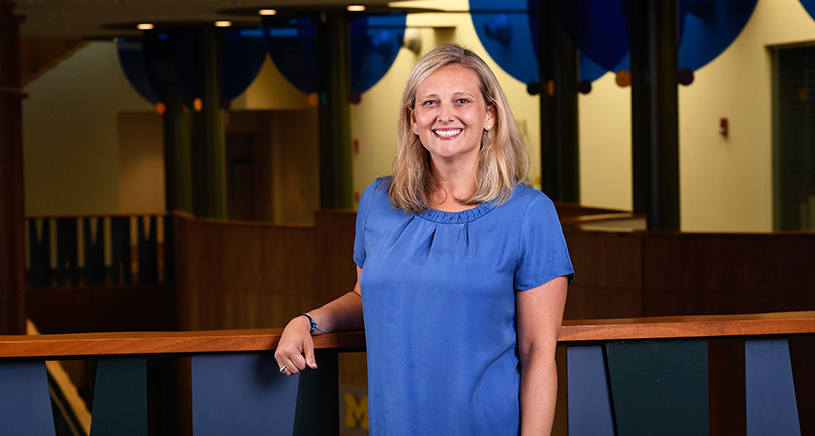
PUBHLTH250: On Purpose: Designing and Living a Big Life
- Undergraduate level
- Residential
- Fall term(s) for residential students;
- 3 credit hour(s) for residential students;
- Instructor(s): Vic Strecher (Residential);
- Prerequisites: None
- Description: A "purpose in life" refers to goals directed toward things that matter most in one's life. Living to a purpose greater than one's self has been viewed by philosophers as essential to health and well-being. This course examines the philosophy and science of purpose and purposeful living.
- Learning Objectives: This course will improve specific understanding of: 1) The purpose in life concept and related concepts (e.g., well-being, resilience, emotional self-regulation, self-affirmation, and self-transcendence) 2) Research related to the above concepts through behavioral, epidemiological, biological, and neuroscience studies. 3) Potential uses of purpose in life and related concepts for interventions designed to improve behavioral, health and well-being outcomes. 4) Personal approaches and skills relevant to self-change using design thinking and self-regulatory strategies (e.g., mindfulness, sleep, creativity).
- This course is cross-listed with TBD in the LSA department.
- Syllabus for PUBHLTH250

PUBHLTH300: Behavioral And Social Science Foundations In Public Health
- Undergraduate level
- Residential
- Fall term(s) for residential students;
- 3 credit hour(s) for residential students;
- Instructor(s): Vic Strecher (Residential);
- Prerequisites: None
- Description: This course provides an introduction to the behavioral and social science factors that influence health and disease, with an emphasis on relevant knowledge for helping individuals make better health-related decisions and changes in their lives. The course explores these factors from the individual to the societal level.
- Syllabus for PUBHLTH300

PUBHLTH305: The Environment And Human Health
- Undergraduate level
- Residential
- Winter term(s) for residential students;
- 4 credit hour(s) for residential students;
- Instructor(s): Richard Neitzel (Residential);
- Prerequisites: None
- Description: This course introduces major issues of environmental health science. We will examine what those issues are, what determines them, and how they can be altered. The course provides an overview for students who want an introduction to environmental health as well as students planning to pursue additional environmental health coursework.
- Syllabus for PUBHLTH305
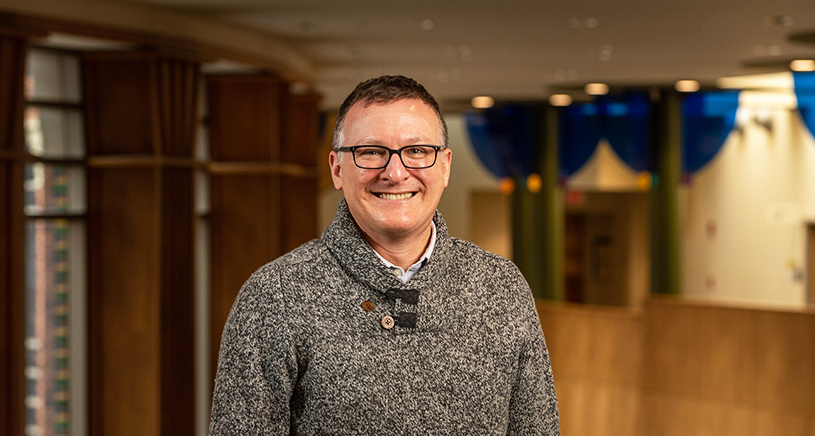
PUBHLTH306: Practical Tools for Conducting Public Health Research
- Undergraduate level
- Residential
- Winter term(s) for residential students;
- 3 credit hour(s) for residential students;
- Instructor(s): David Ifeolu (Residential);
- Offered Annually
- Prerequisites: None
- Description: This course provides students with fundamental principles of research methodologies relevant to public health research. We will review a range of methodologies, including randomized controlled trials, observational studies, and mixed-method approaches. We will develop enhanced capacity to understand and critically appraise data from scientific studies.
- Learning Objectives: 1. Acquire a knowledge base of research methodologies used in public health research 2. Become a critical consumer of public health research and interventions 3. Explain the role of quantitative and qualitative methods and sciences in describing and assessing a populations health 4. Explain the critical importance of evidence in advancing public health knowledge 5. Apply methodological principles toward planning public health research
- Syllabus for PUBHLTH306
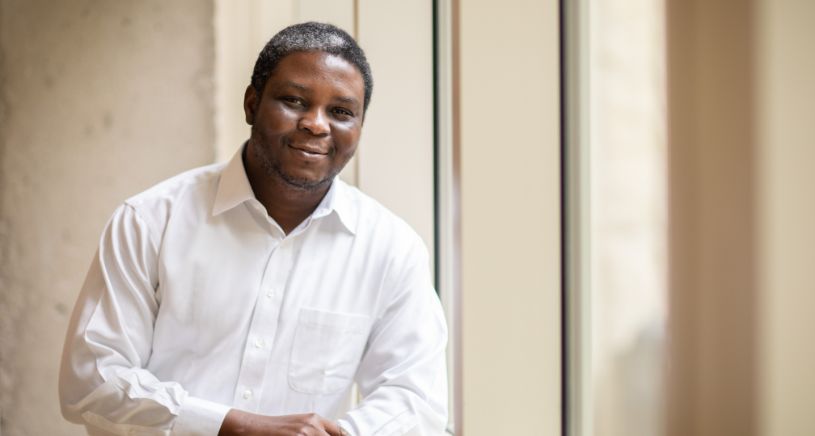
PUBHLTH308: Black American Health: A Focus on Children, Families, and Communities
- Undergraduate level
- Residential
- Winter term(s) for residential students;
- 3 credit hour(s) for residential students;
- Instructor(s): Staff (Residential);
- Prerequisites: none
- Advisory Prerequisites: PUBHLTH 200
- Description: Given persistent challenges to Black American health in the US, this course explores fundamental systems aiding to and robust strengths resisting against health inequalities. Taking a culturally-specific approach to understanding lived experiences of Black Americans, we examine ways in which systems adapt to and must change for optimal health development.
- Learning Objectives: 1. To explore the mental and physical health trajectories of Black youth. 2. To understand how familial, community, and system-level factors impact the well-being of Black youth. 3. To consider (e.g., discover, discuss, and/or develop) effective interventions for Black children, families, and communities.
- Syllabus for PUBHLTH308
PUBHLTH309: Hunger in America: Building Skills to Feed Communities
- Undergraduate level
- Residential
- Winter term(s) for residential students;
- 3 credit hour(s) for residential students;
- Instructor(s): Kate Bauer, Susan Aaronson, (Residential);
- Last offered Winter 2022
- Not offered 2024-2025
- Prerequisites: None
- Advisory Prerequisites: None
- Description: Food insecurity, or a lack of consistent access to enough food for an active, healthy life, affects 1 in 8 Americans, and nearly 1 in 3 University of Michigan students. Food insecurity is caused by the intersection of a wide range of factors, from personal cooking skills to neighborhood food access to federal food policies. For this reason, fighting food insecurity in the US requires advocates with diverse skills, knowledge, and perspectives working together. This course seeks to provide students at the University of Michigan with these skills, knowledge, and perspectives, allowing them to become leaders to improve their own health and wellbeing and that of their communities and nationwide. To accomplish this, the course will integrate community visits; in-classroom, hands-on activities; and instructor-guided seminars to help students understand the experience and impacts of food insecurity across critical life stages of development (children, young adults, seniors).
- Learning Objectives: Identify the relationships between social, economic, community, and personal circumstances that contribute to food insecurity. (Competency 1) Describe how food insecurity impacts social, physical, mental, and intellectual wellbeing. (Competency 1) Understand the role of community-based resources in combating food insecurity. (Competency 1) Understand the role that state and federal nutrition assistance programs have in addressing food insecurity and mitigating impacts of food insecurity. (Competency 1) Design nutritionally-adequate and financially-feasible menus for vulnerable individuals and families. (Competency 2) Demonstrate ability to access and purchase low-cost, nutritionally adequate food that aligns with federal food assistance requirements. (Competency 2) Demonstrate ability to prepare basic, affordable, socially-acceptable and nutritionally-balanced meals. (Competency 2)
- Syllabus for PUBHLTH309
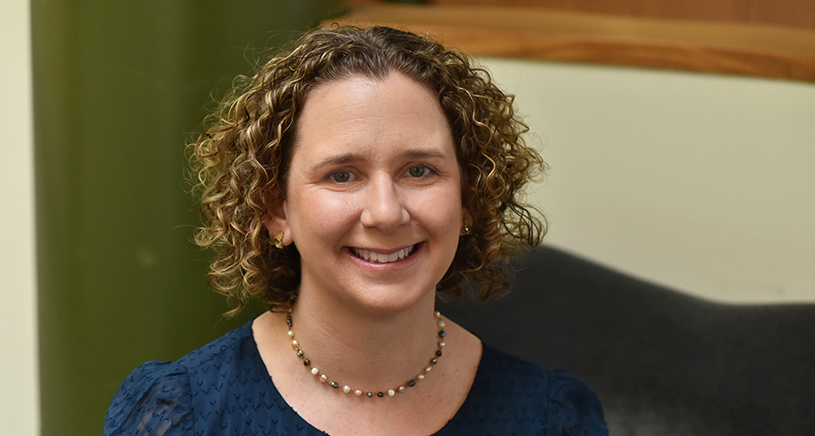

PUBHLTH310: Nutrition in the life cycle
- Undergraduate level
- Residential
- Winter term(s) for residential students;
- 3 credit hour(s) for residential students;
- Instructor(s): Olivia Anderson (Residential);
- Prerequisites: None
- Advisory Prerequisites: Introductory chemistry lecture, Introductory biology lecture
- Description: Nutrition in the Life Cycle will cover nutritional needs of individuals during critical stages of development. Students will learn about the biological basis for nutritional requirements in normal development and maintaining health in adulthood. Consequences of over- and under-nutrition and how to identify and address these issues will be discussed.
- This course is cross-listed with A NUTR 500-level course.
- Syllabus for PUBHLTH310

PUBHLTH311: Introduction to Public Health Genetics
- Undergraduate level
- Residential
- Fall term(s) for residential students;
- 3 credit hour(s) for residential students;
- Instructor(s): Kelly Bakulski (Residential);
- Prerequisites: None
- Description: Course designed for those with limited exposure to biology who are interested in human genetics. Will include basics of genetics at both the molecular and population level, plus some ethical, legal, and social implications of genetics research will be examined. Examples relevant to public health will be emphasized.
- Syllabus for PUBHLTH311
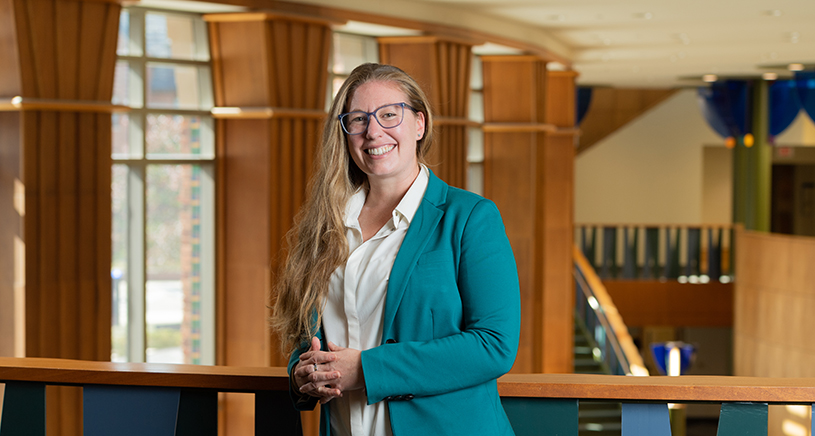
PUBHLTH313: Lgbtq+ Health Promotion: Local And Global Strategies
- Undergraduate level
- Residential
- Winter term(s) for residential students;
- 3 credit hour(s) for residential students;
- Instructor(s): Gary Harper (Residential);
- Not offered 2024-2025
- Prerequisites: PUBHLTH 360 or permission of the instructor.
- Advisory Prerequisites: None
- Description: This skills-based course is focused on providing students with the background, knowledge, skills, and experience needed to create a range of LGBTQ+ health promotion products/materials, programs/interventions, and policies/structural change strategies for diverse populations in multiple settings - including strategies used in local U.S. settings and in global settings. Students will explore and understand health concerns experienced by LGBTQ+ people and communities, and examine the range of LGBTQ+ specific social determinants of health and health inequities. LGBTQ+ health promotion strategies that are delivered at multiple socioecological levels (i.e., individual, interpersonal, organizational, community, and structural/policy) will be reviewed and analyzed in order to explore benefits and challenges of each. Students will then critically analyze existing LGBTQ+ health promotion materials and products (both local and global); interventions and programs; and health policies and other structural change strategies. They will also produce their own LGBTQ+ health promotion product or material; concept sheet for the development of a new LGBTQ+ health promotion intervention or program; and LGBTQ+ specific health policy brief or fact sheet. Finally, students will work with a global LGBTQ+ focused community-based organization (CBO) to develop and produce an LGBTQ+ health promotion product, program concept, or policy brief to be used by the CBO.
- Learning Objectives: By the end of this course students should be able to: -Describe common health concerns experienced by LGBTQ+ people and communities in both local and global communities. -Describe a range of LGBTQ+-specific social determinants of health and health inequities. -Compare and contrast existing local and global LGBTQ+ health promotion strategies delivered at multiple socioecological levels, including individual, interpersonal, organizational, community, and structural/policy. -Critically analyze existing LGBTQ+ health promotion materials and products, and develop such materials/products that can be used in both local and global settings. -Critically analyze existing LGBTQ+ health promotion interventions/programs, and develop a concept sheet for the development of a new intervention/program. -Critically analyze existing LGBTQ+ health policies and other structural change strategies, and develop a health policy brief or fact sheet. -Work with a global community-based organization (CBO) to develop and produce an LGBTQ+ health promotion product, program concept, or policy brief to be used by the CBO.
- Syllabus for PUBHLTH313

PUBHLTH314: Public Health in U.S. Popular Culture
- Undergraduate level
- Residential
- Spring term(s) for residential students;
- 2 credit hour(s) for residential students;
- Instructor(s): Emily Youatt (Residential);
- Prerequisites: None
- Advisory Prerequisites: PUBHLTH 200
- Description: Public health has a public relations problem: it is under appreciated, underfunded, and - when working well - its contributions to population health are often invisible. Yet, public health issues engage political, economic, philosophical, moral, and religious questions that are universally - and sometimes personally -- relevant. Using the lens of popular culture, we will critically examine public health history, concepts, and contemporary challenges. In doing so, we will explore diverse perspectives and experiences, make connections between the past and present, and develop greater empathy for the factors shaping people's lives and influencing their health.
- Learning Objectives: By the end of this course students should be able to: 1. Identify public health concepts, themes, and challenges in popular culture texts. 2. Analyze the roles of setting (time and place), characters, narrative structure, and medium in portraying public health issues. 3. 3. Critique the ways assigned texts represent race, ethnicity, class, gender, sexual orientation, nativity status, and other social identities, and, when relevant the intersections between these representations and key public health issues. 4. Differentiate the contributions of academic versus popular culture texts in understanding public health issues. 5. Facilitate an effective, inclusive group discussion. 6. Reflect on how your own understanding of a public health issue (or those affected by it) changes based on viewing it through a popular culture text.
- Syllabus for PUBHLTH314

PUBHLTH318: Food Literacy for All
- Undergraduate level
- Residential
- Winter term(s) for residential students;
- 2 credit hour(s) for residential students;
- Instructor(s): Staff (Residential);
- Prerequisites: None
- Advisory Prerequisites: None
- Description: This course offers a unique opportunity for students to gain an interdisciplinary overview of crises and opportunities in today's food system through a weekly lecture series bringing high-profile speakers to campus from diverse sectors: academia, grassroots movements, public health, farming, and more. Designed as an academic-community partnership, the course is led by a UM faculty member (Leung) with a leader in food justice in Detroit (Hebron), along with the program manager of the UM Sustainable Food Systems Initiative (Shapiro).
- Learning Objectives: 1) Describe the term "food system" and influencing factors 2) Discuss how food systems impact public and environmental health 3) Describe strategies to promote health equity within local and national food systems 4) Propose opportunities for improving the food system and the social and environmental levels
- This course is cross-listed with EAS 639 ENVIRON 314 NUR518 (pending) in the SEAS, LSA Program in the Environment, SPH Nutritional Sciences department.
PUBHLTH320: The History of Racism in the U.S. Healthcare System
- Undergraduate level
- Residential
- Fall term(s) for residential students;
- 3 credit hour(s) for residential students;
- Instructor(s): Lewis Morgenstern (Residential);
- Prerequisites: None
- Description: This class will trace the history of the U.S. healthcare system from post-civil war to the present, and how racism shaped an unfair system. The history is troubling and continues today with efforts to repeal the ACA, and to continue as a country that does not offer universal healthcare.
- Learning Objectives: Students taking this course are expected to learn about: 1. The social and economic factors resulting from racism that affect healthcare organization in the U.S. 2. The history of the post-civil war U.S. healthcare system and racial influences on its organization. 3. The effects of a racist healthcare system on the health of U.S. citizens.
- Syllabus for PUBHLTH320

PUBHLTH321: Eating Disorders Prevention & Treatment
- Undergraduate level
- Residential
- Fall term(s) for residential students;
- 3 credit hour(s) for residential students;
- Instructor(s): Kendrin Sonneville (Residential);
- Prerequisites: None
- Advisory Prerequisites: STATS250; this is already required for PH majors
- Description: This course is designed to introduce undergraduate students to eating disorders using a public health framework. Students will be exposed to key concepts and controversies in the eating disorders field.
- Learning Objectives: Discuss the science of primary, secondary and tertiary prevention in population health, including health promotion, screening, etc. Explain biological and genetic factors that affect a population’s health Explain behavioral and psychological factors that affect a population’s health
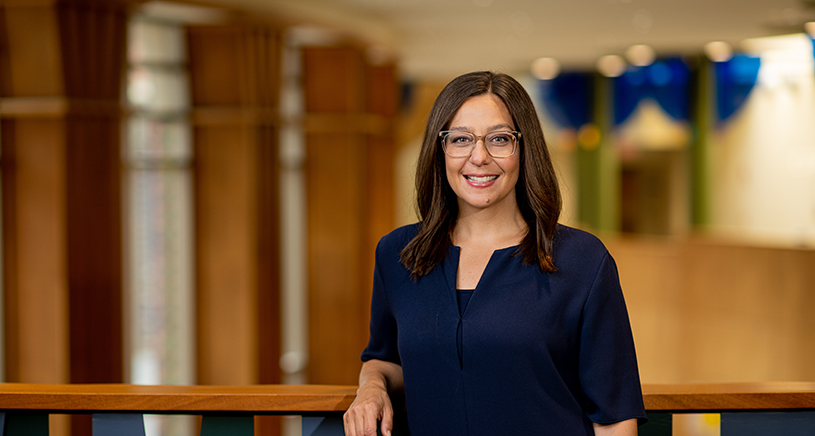
PUBHLTH323: Food Security & Food Assistance In The U.s.
- Undergraduate level
- Residential
- Fall term(s) for residential students;
- 3 credit hour(s) for residential students;
- Instructor(s): Jennifer Garner (Residential);
- Prerequisites: None
- Advisory Prerequisites: N/A
- Description: Students will: grapple with the complex etiology and consequences of food insecurity in the U.S., including the historical roots of current programming; interrogate current approaches to addressing it at the local, state, and federal levels; and synthesize the state of the science toward policy proposals for strategic programmatic refinements.
- Learning Objectives: A. Appreciate the complex set of factors that influence the risk for and experience of food insecurity in the United States by… 1. Reflecting on their and their family’s food-related traditions, practices, and routines and any related privileges or lack thereof, and 2. Developing a conceptual map of factors known to impact risk of or be associated with food insecurity; B. Know the reach, function, and impacts of current non-profit and federal food assistance programs by… 3. Defining the current eligibility criteria and key provisions of major federal and non-profit food assistance programs, 4. Identifying purported/hypothesized impacts of food assistance programming for individuals, households, communities, and the economy, and 5. Analyzing known dietary, health, social, and economic food assistance program impacts based on the available peer-reviewed literature; C. Understand the historical events that informed current U.S. food assistance programming efforts by… 6. Examining the political, social, and economic circumstances surrounding the origin of a federal food assistance program, 7. Describing the ways in which the reach, provisions, and impacts of a federal food assistance program have changed over time, and 8. Comparing contemporary and historical controversies related to the private and public administration of food assistance benefits, D. Recognize the strengths, limitations, and potential of various food assistance approaches by… 9. Assessing a selected food assistance program's strengths and limitations, and 10. Proposing a program modification that would be reasonably expected to expand reach, facilitate efficiencies, or improve program outcomes.

PUBHLTH326: The U.s. Healthcare System
- Undergraduate level
- Residential
- Winter term(s) for residential students;
- 2 credit hour(s) for residential students;
- Instructor(s):
- Prerequisites: None
- Advisory Prerequisites: PUBHLTH 200
- Description: This course provides an overview of the current U.S. Health Care System with the emphasis on the components and challenges of the Organization, Delivery, and Financing of health care today.
- Learning Objectives: Upon successfully completing this course, the student will be able to: a. Describe the major stages in the development of healthcare delivery in the U.S. b. Describe the major economic, social and political stages in the development of Health Care Delivery c. Describe the Current U.S. Health Care Delivery System and Challenges facing Care Providers. d. Describe the current financing opportunities and challenges in health care delivery. e. Assess and describe the current challenges in the US Health Care Delivery system within the context of Personal Care Delivery: cost, quality and access to care.
- Syllabus for PUBHLTH326
PUBHLTH333: Emerging Issues In Public Health
- Learn more about each section of the Public Health Topics Course
- Undergraduate level
- Residential
- Fall, Winter term(s) for residential students;
- 1-4 credit hour(s) for residential students;
- Instructor(s): Staff (Residential);
- Prerequisites: None
- Description: This course will be used by faculty members to teach special or emerging topics in Public Health. The specific material and format will vary by semester and instructor.
- Learning Objectives: Learning objectives will vary by topic and instructor.
PUBHLTH345: Public Health Data Visualization
- Undergraduate level
- Residential
- Winter term(s) for residential students;
- 2 credit hour(s) for residential students;
- Instructor(s): Philip Boonstra (Residential);
- Prerequisites: None
- Advisory Prerequisites: STAT250
- Description: This course teaches both the principles and practice of effective data visualization using the R statistical environment, with a special focus on public health data sets. Historical and contemporary examples of data visualizations will be assessed with respect to their effectiveness and integrity.
- Learning Objectives: 1. To understand the principles of effective and accurate graphical representation of different data types; 2. To draw conclusions from graphical representations about relationships and trends in variables; 3. To understand how graphical representations of data can be used to mislead or exaggerate relationships; 4. To create and improve data visualizations using the R statistical environment;
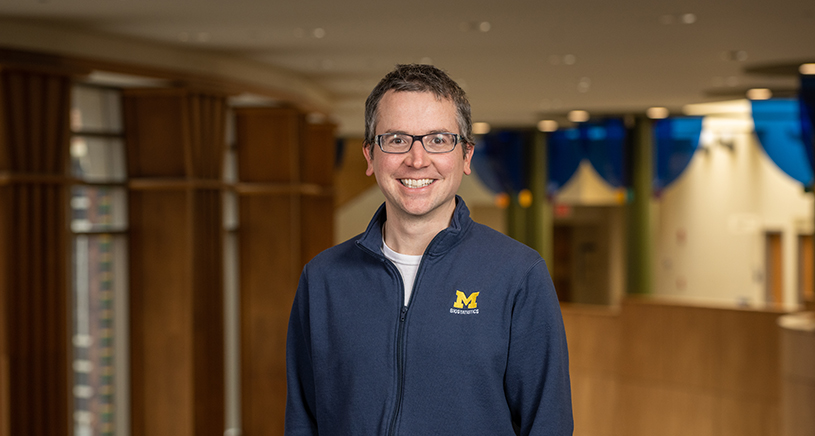
PUBHLTH350: Global Public Health: Challenges and Transformations
- Undergraduate level
- Residential
- Winter term(s) for residential students;
- 4 credit hour(s) for residential students;
- Instructor(s): Abram Wagner (Residential);
- Prerequisites: None
- Description: This course integrates foundational principles of political science and international studies in an exploration of epidemiological transitions, goal-setting in international organizations, and other global public health challenges. Students will investigate health disparities between countries and between socioeconomic groups within a country, and will discuss key communicable and non-communicable health conditions.
- Syllabus for PUBHLTH350

PUBHLTH357: Behavioral And Social Science Research In Hiv: Methods And Perspectives For Sexual & Gender Minority Communities
- Undergraduate level
- Residential
- Fall, Winter term(s) for residential students;
- 3 credit hour(s) for residential students;
- Instructor(s):
- Not offered 2024-2025
- Prerequisites: None
- Description: This intensive course is exclusively for SOAR students (Student Opportunities for AIDS/HIV Research). Rising juniors enrolled at the Ann Arbor campus are eligible to apply to participate in the SOAR program. During their junior and senior years, students will complete a two-year-long research experiences and a short-term summer research experience or internship. Learn more about the program and apply at irwg.umich.edu/soar
- Learning Objectives: Class sessions will cover interdisciplinary learning about HIV and sexual and gender minority health populations, with a focus on theoretical and methodological frameworks such as intersectionality and HIV, critical race theory and HIV, queer theory and HIV, and minority stress theory and HIV. Specific sections of the course will include interdisciplinary explorations of health inequities and social determinants of health, especially as they apply to HIV, ethnic/racial minorities, sexual and gender minorities and women. Research ethics will be covered in these meetings as well, deeply situated in a historical study of events such as the Tuskegee experiments, J. Marion Sim’s gynecological experimentation on enslaved Black women, and ACT UP’s treatment activism and collaboration in the early days of the AIDS crisis.
- This course is cross-listed with WGS 377 in the College of Literature, Science, and the Arts department.
PUBHLTH360: Community, Culture, and Social Justice (CCSJ) in Public Health
- Undergraduate level
- Residential
- Fall term(s) for residential students;
- 3 credit hour(s) for residential students;
- Instructor(s): Gary Harper (Residential);
- Prerequisites: None
- Advisory Prerequisites: PUBHLTH 200
- Description: Students will explore social constructions of health, and examine the interplay of community, cultural, ethical, social, economic, environmental, political and social justice forces that shape health. Concepts of community, culture, and social justice will be explored and students will examine how these concepts can be applied to public health interventions.
- Syllabus for PUBHLTH360

PUBHLTH370: Public Health Biology and Pathophysiology
- Undergraduate level
- Residential
- Fall term(s) for residential students;
- 4 credit hour(s) for residential students;
- Instructor(s): Carrie Karvonen-Gutierrez (Residential);
- Prerequisites: None.
- Description: This course provides a foundation of biology and pathophysiology concepts necessary for the practice of public health including an evaluation of the natural history and mechanisms underlying infectious and chronic human diseases. This course will also address population-level targets for prevention and treatment of major diseases of human health.
- Syllabus for PUBHLTH370
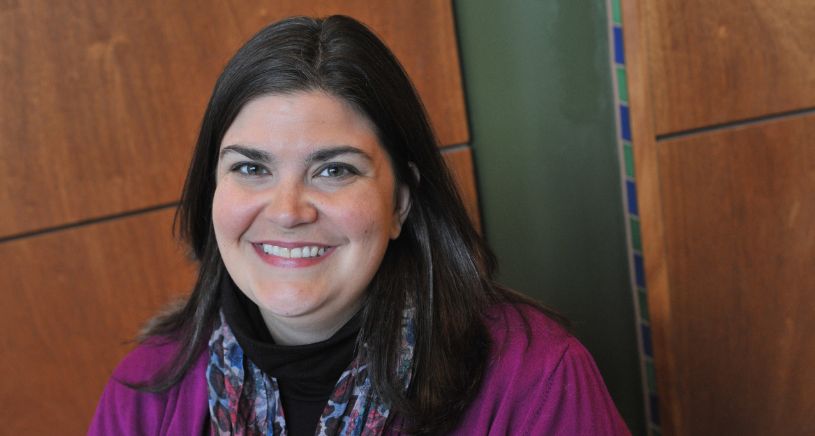
PUBHLTH380: Leadership And Teamwork: From Personal Growth To Professional Achievement
- Undergraduate level
- Residential
- Winter term(s) for residential students;
- 1 credit hour(s) for residential students;
- Instructor(s): Staff (Residential);
- Prerequisites: None
- Description: PUBHLTH 380 is an intensive 7-week course that focuses on foundational leadership and teamwork skills to foster both professional and personal growth through the lens of emotional intelligence. Throughout the course, students will gain insights into diverse leadership styles and their effective application in diverse scenarios.
- Learning Objectives: 1. Identify multiple leadership styles and their applicability. 2. Understand cultural humility and inclusive leadership. 3. Understand the importance of collaboration and teamwork in leadership. 4. Identify common challenges in teamwork and strategies to overcome them. 5. Learn consensus-building and decision-making skills. 6. Develop skills to engage in difficult conversations effectively. 7. Understand the importance of continuous improvement and self-renewal. 8. Define the four key domains of emotional intelligence and its significance in leadership. - Explore self-awareness, including critical self reflection, emotional self-awareness, and accurate self-assessment. - Explore social awareness and reflect on one's social identity and its impact on leadership. - Explore self-management skills, including emotional control, stress management, empathy and listening skills. - Explore relationship management, communication styles, and conflict resolution.
PUBHLTH381: Public Health Systems: Achievements and Challenges
- Undergraduate level
- Residential
- Fall term(s) for residential students;
- 3 credit hour(s) for residential students;
- Instructor(s): Staff (Residential);
- Prerequisites: PUBHLTH 200 and Jr. or Sr. Standing OR declared PUBHLTH major
- Description: This course will provide an overview of the essential role of the public health system, which includes health care systems, government organizations and non-governmental organizations, in improving health locally and globally. The top achievements in public health will be critically examined along with current and emerging challenges and threats to human health and well-being, including health inequities. Mechanisms and measures for evaluating human health and illness will be discussed. This course will emphasize multidisciplinary and multi-sector approaches to health promotion and disease prevention.
- Syllabus for PUBHLTH381
PUBHLTH382: Population Health Determinants & Disparities
- Undergraduate level
- Residential
- Winter term(s) for residential students;
- 3 credit hour(s) for residential students;
- Instructor(s): Enrique Neblett (Residential);
- Prerequisites: PUBHLTH 200 and PUBHLTH 381
- Description: This course explores the social and environmental factors that impact disease susceptibility across populations. Students will learn of the complexities and interactions of factors that influence patterns of disease and health at multiple levels. The course will introduce key analytic frameworks and metrics for evaluating public health problems.
- Learning Objectives: 1. Define population health within the context of public health 2. Describe the importance of context in understanding population health 3. Explain the nature of health and disease at individual and societal levels 4. Identify how health is defined culturally and describe how cultural factors influence health 5. Identify key risk factors at multiple behavioral and genetic levels 6. Distinguish health disparities in relation to race, ethnicity, gender, sexual orientation, age, geographic location, and other socio-economic dimensions 7. Critically apply key concepts and analytic frameworks to address population health issues 8. Describe the role of data in assessing, describing and evaluating the complex interactions among multiple determinants of health and disease
- Syllabus for PUBHLTH382
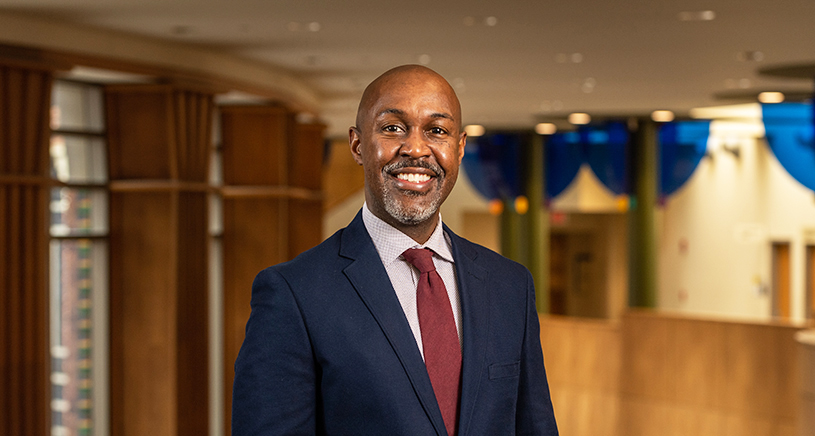
PUBHLTH383: Data Driven Solutions In Public Health
- Undergraduate level
- Residential
- Winter term(s) for residential students;
- 4 credit hour(s) for residential students;
- Instructor(s): Matt Zawistowski (Residential);
- Prerequisites: PUBHLTH 200 and PUBHLTH 381 and one of: STATS 206, STATS 250, STATS 280, STATS 412, IOE 265, or ECON 451.
- Description: This course introduces the importance of data in public health, including collection, analysis, interpretations, and dissemination. It provides examples of data used to evaluate public health decisions, policy and resource allocation. It is an introduction to biostatistical and epidemiological methods, informatics, and big data including usage, management and challenges.
- Learning Objectives: 1)Identify key strategies and methods for obtaining current public health data 2)Explain the use of basic epidemiological methods in study design and implementation to generate new data and metrics to address public health issues 3)Illustrate how analyses and results are used to inform intervention development and influence appropriate public health policies. 4)Apply statistical methods in order to describe data, make inferences and test hypotheses regarding population parameters 5)Apply results from data analyses to explore, define, identify and prioritize public health challenges and solutions
- Syllabus for PUBHLTH383

PUBHLTH384: Creating Change in Public Health
- Undergraduate level
- Residential
- Fall term(s) for residential students;
- 3 credit hour(s) for residential students;
- Instructor(s): Staff (Residential);
- Prerequisites: [PUBHLTH 200; (C- or better) & Junior or Senior Standing] or Public Health Major
- Description: This course introduces students to strategies as well as best practices and challenges in translating strategies into public health policies, programs and practices. This course provides an overview of stakeholders who create, enact, and assess health promotion strategies. Students will identify, define and evaluate strategies to address public health issues.
- Learning Objectives: 1. Explain the process for tailoring intervention messages based on the specific audiences, content and media channels 2. Discuss the legal, ethical and economic implications of public health policies and interventions 3. Describe principles of planning, implementing and evaluating public health programs and interventions 4. Compare and contrast the roles of various policy-forming bodies (agencies, organizations, governments) in public health promotion 5. Explore various conceptualizations of effectiveness with regard to public health strategies
- Syllabus for PUBHLTH384
PUBHLTH394: Pluralism And Public Health In The United States - An Intenstive Writing Seminar
- Undergraduate level
- Residential
- Fall term(s) for residential students;
- 3 credit hour(s) for residential students;
- Instructor(s): Lewis Morgenstern (Residential);
- Prerequisites: None
- Advisory Prerequisites: upper-level standing
- Description: This class explores how crucial public health issues are viewed within the political pluralism lens in the U.S. and aims to suggest ways to find compromise that will enable solutions to serve all populations in the U.S.
- Learning Objectives: Students taking this course are expected to learn about: 1. The role of public health in the two-party political system in the U.S. 2. The importance of debate, compromise and consensus in law making to improve the health of population in the U.S. 3. Understanding the diversity of thought around public health issues in the U.S.

PUBHLTH401: Exploring the public health spectrum of cancer: from prevention to survivorship
- Undergraduate level
- Residential
- Fall term(s) for residential students;
- 3 credit hour(s) for residential students;
- Instructor(s): Alison Mondul (Residential);
- Prerequisites: None
- Advisory Prerequisites: PUBHLTH200, first year writing requirement
- Description: The course will review the socio-demographic magnitude of cancer in the US and globally, basic concepts of cancer biology and the causes of cancer. Major risk factors such as tobacco and obesity will be discussed. Students will be introduced to the concepts of prevention, screening, treatment, and survivorship.
- Syllabus for PUBHLTH401

PUBHLTH405: Social history of infectious disease
- Undergraduate level
- Residential
- Fall term(s) for residential students;
- 3 credit hour(s) for residential students;
- Instructor(s): Jonathan Zelner (Residential);
- Prerequisites: None
- Description: We will focus on five specific pathogens that have had an outsize impact on the trajectory of human health and societies: Cholera, Polio, Tuberculosis, Influenza, and HIV.
- Learning Objectives: 1. Understand the concept of infectious disease "natural history" of infection. 2. Understand and enumerate key infectious diseases in human history. 3. Understand the key social and historical mechanisms underlying the emergence and transmission of infectious diseases.
- Syllabus for PUBHLTH405
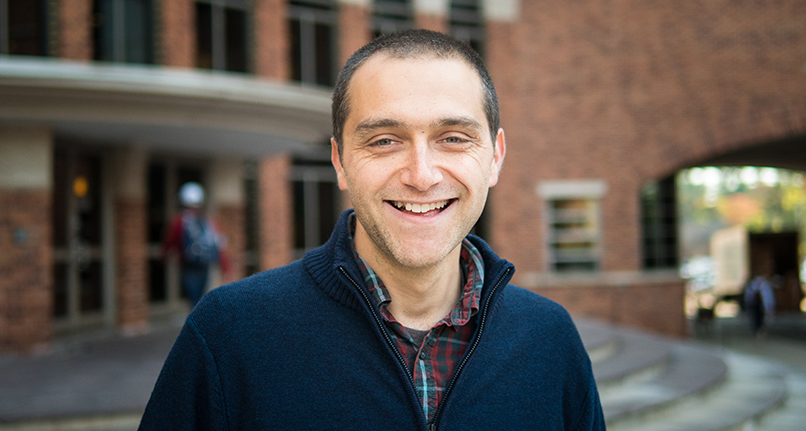
PUBHLTH407: Links between Infectious and Non-Communicable Diseases
- Undergraduate level
- Residential
- Winter term(s) for residential students;
- 3 credit hour(s) for residential students;
- Instructor(s): Melissa Beck (Residential);
- Prerequisites: PUBHLTH370 (or equivalent)
- Advisory Prerequisites: an introductory microbiology and immunology course or an introductory infectious disease course and an introductory non-communicable disease course.
- Description: This course introduces the students to the etiology, pathogenesis, and the evolution of epidemiology of major infectious and non-communicable diseases. It discusses the links between major infectious and non-communicable diseases, including epidemiological evidence, the underlying mechanisms, and their public health implications.
- Learning Objectives: 1. Gain an understanding of the international statistical classification of diseases and related health problems. 2. Describe the etiology, history, pathogenesis, and evolution of major infectious and non-infectious diseases in different populations. 3. Review epidemiological evidence for links between major infectious and non-communicable diseases 4. Identify methodologies required for studying links between infectious and non-communicable diseases and for exploring the underlying mechanisms of such links. 5. Discuss the public health implications of epidemiological transitions of human diseases and the infectious and non-communicable disease links.
- Syllabus for PUBHLTH407
PUBHLTH410: Making Change: Public Health Policy Advocacy in Principle and Practice
- Undergraduate level
- Residential
- Winter term(s) for residential students;
- 3 credit hour(s) for residential students;
- Instructor(s): Staff (Residential);
- Prerequisites: PUBHLTH 200
- Description: This class will provide students with skills to advocate for public health policies at all levels of government. Through lectures, class discussions, and group projects on "live" public health issues, students develop the skills to create opportunities to inform policymaking, and become more effective communicating in the policymaking environment.
- Learning Objectives: 1. Appraise the political landscape and stakeholders that are important for making policy change on a given public health topic. 2. Apply principles of policy-making, policy change theory, and policy advocacy to real life public health problems. 3. Effectively advocate for public health change at the local, state and federal level. 4. Develop strong written and verbal communication skills. 5. Define and frame public health problems in such a way that inspires policy change. 6. Analyze the legislative, administrative and judicial intervention points for policymaking and identify where to effectively target advocacy efforts. 7. Identify and evaluate advocacy strategies, such as coalition building, grassroots engagement, and paid and earned media outreach, in order to create specific advocacy campaigns. 8. Develop personal and communication skills to effectively translate and advocate for public health improvements to policymakers, the press and the public.
- Syllabus for PUBHLTH410
PUBHLTH411: Making Change: Experiential Learning in Effective Public Health Policy Advocacy
- Undergraduate level
- Residential
- Winter term(s) for residential students;
- 1 credit hour(s) for residential students;
- Instructor(s): Staff (Residential);
- Prerequisites: No enforced prereq. This course is a corequisite to PUBHLTH 410 - students who elect this course must also be enrolled in PUBHLTH 410.
- Description: In this course, students will apply knowledge obtained in Professor Wolfson's course to a current state policy issue pending in Lansing. Students will gain strong written and verbal communication skills by developing an advocacy strategy, preparing written materials, and meeting with policymakers in Lansing to advance their policy goal.
- Learning Objectives: 1. Appraise the political landscape and stakeholders that are important for making policy change on a given public health topic. 2. Apply principles of policy-making, policy change theory, and policy advocacy to real life public health problems. 3. Effectively advocate for public health change at the local, state and federal level. 4. Develop strong written and verbal communication skills. 5. Define and frame public health problems in such a way that inspires policy change. 6. Analyze the legislative, administrative and judicial intervention points for policymaking and identify where to effectively target advocacy efforts. 7. Identify and evaluate advocacy strategies, such as coalition building, grassroots engagement, and paid and earned media outreach, in order to create specific advocacy campaigns. 8. Develop personal and communication skills to effectively translate and advocate for public health improvements to policymakers, the press and the public.
PUBHLTH413: Vaccines in Public Health
- Undergraduate level
- Residential
- Fall term(s) for residential students;
- 3 credit hour(s) for residential students;
- Instructor(s): Staff (Residential);
- Prerequisites: PUBHLTH370 or permission of the instructor
- Advisory Prerequisites: Introductory Infectious Disease Courses
- Description: This course introduces essential vaccinology, covering pre-clinical vaccine development, clinical trials, new vaccine licensing, immunization program design and evaluation. It also introduces population transmission dynamics concepts, and the impact of pathogen and human population diversity on vaccination. Recent advancements in major types of non-infectious vaccines will also be discussed.
- Learning Objectives: To gain an understanding of how new knowledge generated from epidemiological studies from different populations, basic biomedical science research, and health policy assessment, along with the development of new technology, can jointly inform and impact the development of new vaccines for the prevention of different types of diseases, including both infectious and non-infectious diseases. to be familiar with the essential steps involved in developing a new vaccine. to understand important factors that affect the efficacy, effectiveness, and the public acceptance of vaccination.
- Syllabus for PUBHLTH413
PUBHLTH414: Population Approaches to Mental Health
- Undergraduate level
- Residential
- Fall, Winter term(s) for residential students;
- 3 credit hour(s) for residential students;
- Instructor(s): Michael Swain (Residential);
- Prerequisites: None
- Advisory Prerequisites: A grade of B or better in an introductory course in psychology/sociology and in an introductory quantitative science course (statistics, mathematics, physics, etc.).
- Description: Overview of population mental health in the US context. Case-examples (autism, depression, substance use, etc.) will be used to illustrate social patterning, issues of nosology and measurement, and mental health treatment/services. Students will consider how social stigma impacts assessment and services for mental health conditions through readings the course project.
- Learning Objectives: 1. Become familiar with data and surveillance systems for population mental health in the US 2. Understand the role of social, biological, and environmental determinants of mental health 3. Discuss the role of social stigma in the assessment and treatment of mental disorders 4. Interact with various stakeholders in public mental health systems
- Syllabus for PUBHLTH414
PUBHLTH417: Eat, Sleep, Analyze: The Interplay Of Sleep And Nutrition On Population Health
- Undergraduate level
- Residential
- Fall term(s) for residential students;
- 3 credit hour(s) for residential students;
- Instructor(s): Erica Jansen (Residential);
- Prerequisites: PUBHLTH200 and PUBHLTH383, or permission of instructor
- Description: This course explores the intersecting and bidirectional roles of sleep and nutrition on health at the population level. Through lectures, discussion, and application, you will gain an understanding of current sleep and nutrition epidemiological research. As a semester-long project, you will investigate a research question about sleep and diet.
- Learning Objectives: 1. Gain a scientific understanding of the bidirectional relationships of sleep and nutrition, and how they impact health, especially cardiovascular health 2. Use literature and conceptual diagrams to determine the relationships of sleep, nutrition, and other relevant variables to one another (i.e., exposures, outcomes, confounders, mediators, etc). 3. Utilize epidemiologic concepts to critically evaluate the literature 4. Develop a sleep-related research question and plan of analysis 5. Gain hands-on experience with basic survey data collection methods and data analysis of sleep data 6. Articulate and present research findings 7. Consider the topic area through a public health lens, including the social determinants of health
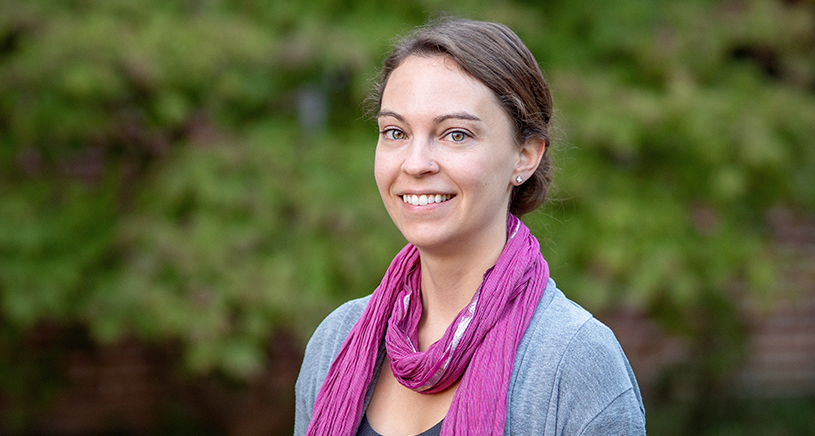
PUBHLTH430: Nutrients And Health
- Undergraduate level
- Residential
- Fall term(s) for residential students;
- 3 credit hour(s) for residential students;
- Instructor(s): Dave Bridges (Residential);
- Prerequisites: PUBHLTH370 or PHYSIOL502
- Description: Nutrition is a fascinating and complicated topic, it has important repercussions for performance, health, and sustainability. Unlike genetics or culture, nutrition is largely within your control to change or support change in others. This course will focus on the biology and sources of key nutrients in our diet and how these relate to the occurrence of common diseases.
- Learning Objectives: What nutrients are essential, and how much we require daily How nutrients are sensed, absorbed, metabolized, and excreted, and how these processes are controlled Which foods contain what nutrients, and how to locate this information How nutrient deficiencies or excesses relate to the prevalence of acute and chronic diseases in the United States and abroad
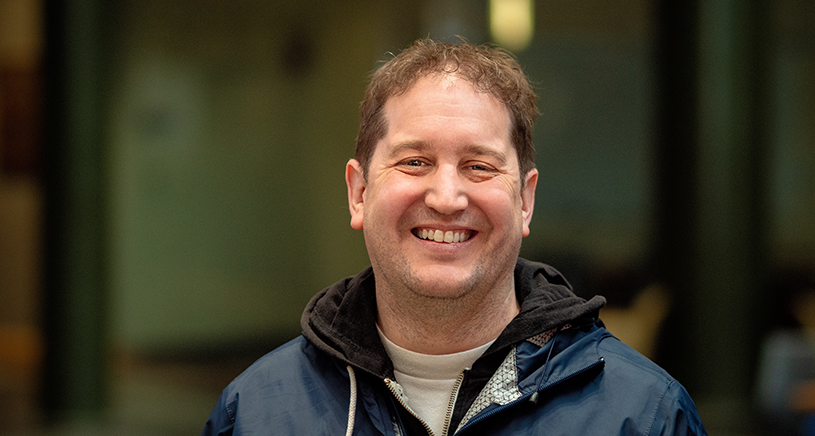
PUBHLTH450: Critical Reflections on Global Public Health
- Undergraduate level
- Residential
- Winter term(s) for residential students;
- 3 credit hour(s) for residential students;
- Instructor(s): Staff (Residential);
- Prerequisites: PUBHLTH350 or permission of instructor
- Description: This advanced seminar is intended to interrogate global public health practice from multiple disciplinary perspectives. We will juxtapose historical analysis and contemporary observation to critique ways in which the health issues of developing countries are discussed, studied, and intervened upon by global health actors, especially those from the United States.
- Learning Objectives: Students taking this course are expected to: 1. Understand the historical origins of global public health as a field and draw connections between historical movements in global health and current practice. 2. Critique how social, political and economic forces influence how global health priorities are set, how studies and programs are designed, and how studies and programs are evaluated and reported. 3. Analyze current trends in global health practice, research and training, evaluate those trends based on principles of equity, and discuss opportunities to implement principles of 'responsible global health citizenship' in their future work.
- Syllabus for PUBHLTH450
PUBHLTH457: Translating Hiv Research Into Policy And Practice For Sgm Communities
- Undergraduate level
- Residential
- Fall, Winter term(s) for residential students;
- 1-2 credit hour(s) for residential students;
- Instructor(s): Gary Harper (Residential);
- Prerequisites: None
- Description: This course is required course for seniors in the SOAR program. Students will work on professional development for research careers, including applying to graduate programs, discussing behavioral and social science career issues in a group setting, and working on research products such as articles for publication or policy briefs.
- Learning Objectives: -Describe a range of SGM-specific HIV-focused social determinants of health and health inequities. -Compare and contrast existing local and global efforts to translate and disseminate findings from SGM-focused HIV prevention and treatment research delivered at multiple socio-ecological levels, including individual, interpersonal, organizational, community, and structural/policy. -Critically analyze existing SGM-focused HIV prevention and treatment health promotion materials and products, and develop such materials/products that can be used in both local and global settings. -Critically analyze existing SGM-focused HIV prevention and treatment policies and other structural change strategies, and develop a health policy brief or fact sheet. -Describe the type of research career they wish to pursue, including the additional training and experiences they will need to pursue such a career. -Develop a detailed strategic plan focused on short, medium, and long-term goals related to gaining the appropriate training and skills needed to obtain their desired research career.
- This course is cross-listed with WGS 482 in the LSA department.

PUBHLTH460: Introduction To Bacterial Pathogenesis
- Undergraduate level
- Residential
- Winter term(s) for residential students;
- 3 credit hour(s) for residential students;
- Instructor(s): Alex Rickard (Residential);
- Not offered 2024-2025
- Prerequisites: Pubhlth 370 or Bio 207, AND Pubhlth 311 or Bio 305
- Description: Microbial structures and their relation to basic mechanisms of bacterial pathogenesis; structure, function, and genetics of bacterial toxins; and host resistance and immunity. Discussions of pathogenic organisms of major public health importance, diseases caused, and their epidemiology.
- Learning Objectives: 1. Understand the role played by bacteria in human health and disease. 2. Understand how genetic transfer mechanisms can lead to bacteria with increased virulence and antibiotic resistance. 3. Understand how bacterial toxins and other virulence factors help bacteria cause disease. 4. Understand public health approaches to preventing bacterial diseases. 5. Understand how antibiotics kill bacteria and how bacteria become resistant to them.
- This course is cross-listed with EPID 560 in the Epidemiology, SPH department.
- Syllabus for PUBHLTH460

PUBHLTH465: The Science of Medicine
- Undergraduate level
- Residential
- Fall term(s) for residential students;
- 3 credit hour(s) for residential students;
- Instructor(s): Lewis Morgenstern (Residential);
- Last offered Not offered in Fall 2025.
- Not offered 2024-2025
- Prerequisites: None
- Description: The class studies evidence-based medicine. It begins with a thorough review of study design, and then uses these skills to explore relevant issues to Public Health and medical practice. The first half of each class is interactive lecture; the second half is a flipped classroom with activity-based learning.
- Learning Objectives: Students taking this course are expected to learn about: 1. Evidence-based medicine 2. The scientific underpinnings of diagnosis and treatment 3. The ethics of medical decision making; strategies for communication and special populations
- This course is cross-listed with MEDPREP 470. Additionally Kinesiology and Biology are considering cross-listing. in the Medical school department.
- Syllabus for PUBHLTH465

PUBHLTH477: Readings in Public Health
- Undergraduate level
- Residential
- Fall, Winter term(s) for residential students;
- 1-3 credit hour(s) for residential students;
- Instructor(s): Staff (Residential);
- Prerequisites: None
- Description: Review of literature or directed readings on selected topic related to one or more areas of public health.
- Learning Objectives: By the end of the term, students should be able to find and appropriately interpret and critically evaluate the findings in peer-reviewed scientific literature.
PUBHLTH478: Practical Projects in Public Health
- Undergraduate level
- Residential
- Fall, Winter term(s) for residential students;
- 1-3 credit hour(s) for residential students;
- Instructor(s): Staff (Residential);
- Prerequisites: None
- Description: Practical projects allows undergraduate students to explore community-based public health settings. Project must be related to public health practice and developed in consultation with a faculty advisor. Students will write an integrative paper analyzing the organization's role in the public health system and critically reflecting on their experience.
- Learning Objectives: As part of this course students will consider the following concepts: 1. Health promotion at a population level 2. Community dynamics and the cultural context in which public health professionals work 3. Organizational structure and dynamics, including the organization's role in the public health system 4. How to operate professionally in a public health organization (including but not limited to: personal work ethic, professionalism, teamwork, and leadership)
PUBHLTH479: Independent Research in Public Health
- Undergraduate level
- Residential
- Fall, Winter term(s) for residential students;
- 1-3 credit hour(s) for residential students;
- Instructor(s): Staff (Residential);
- Prerequisites: None
- Description: Students conduct independent research on a specific public health topic under the supervision of a public health faculty member.
- Learning Objectives: After completing this course, students will: 1. Understand how to form a research question; 2. Be able to identify relevant literature or data sources to address a research question; 3. Better understand the role of data in understanding public health problems.
PUBHLTH480: Leadership & Managment In Today's Health Care Environment
- Undergraduate level
- Residential
- Fall term(s) for residential students;
- 1 credit hour(s) for residential students;
- Instructor(s):
- Not offered 2024-2025
- Prerequisites: Undergraduate public health student (req group 014769)
- Description: In this course students will explore the goals, evaluation, and leadership opportunities and challenges in the delivery of health care today. This course will offer students an opportunity to reflect on their own leadership style and professional goals, with the guidance of an instructor and guest lecturers with long, diverse careers in public health, healthcare, and consulting settings.
- Learning Objectives: Upon completion of the course, students should be able to: 1. Have an understanding of the leadership/clinical management needs and structures of complex Health Care Organizations. 2. Have an understanding of the differences and similarities between management and leadership. 3. Have an understanding of the critical roles of collaboration between administrators and healthcare providers: physicians, nurses and others. 4. Have an enhanced insight into career pathways and enhanced professional skills to successfully enter the workforce.
- Syllabus for PUBHLTH480
PUBHLTH481: Public Health Practice and Professionalism
- Undergraduate level
- Residential
- Fall term(s) for residential students;
- 3 credit hour(s) for residential students;
- Instructor(s): Staff (Residential);
- Prerequisites: PUBHLTH 200
- Advisory Prerequisites: PUBHLTH 381 or PUBHLTH 382 or PUBHLTH 383
- Description: Students will apply their knowledge and skills to address current public health challenges. Professional development and engagement with public health agencies will prepare students to work in the field.
- Learning Objectives: By the end of the course students should (be able to): 1. Explain what public health practice is and distinguish it from public health research; 2. Integrate knowledge with theory and practice to propose solutions to current public health challenges (esp. those that impact population health and contribute to health disparities); 3. Describe public health infrastructure, including the systems, competencies, frameworks, relationships, and resources that enable public health agencies to perform their core functions and essential services; 4. Assess community health needs, identifying key problems and assets, and create a conceptual framework that informs decision making; 5. Prioritize working with communities, agencies and other stakeholders in culturally appropriate ways; 6. Engage in cross-disciplinary, team-based discussion and project design; 7. Collect high quality data to analyze, evaluate and disseminate as public health information via appropriate channels; 8. Develop a strategy to promote health - from broad policy to direct intervention - that accounts for available resources, stakeholder interests, and community needs; 9. Describe a process for evaluation that assesses and improves the quality of a public health strategy and determines its effectiveness; 10. Exhibit professionalism and an ability to think critically while communicating and practicing public health; 11. Recognize the importance of public health work that is performed outside of an academic setting, and how learning in this context contributes to professional advancement in the field.
- Syllabus for PUBHLTH481
